Search Images
Browse Content (p. 1495)
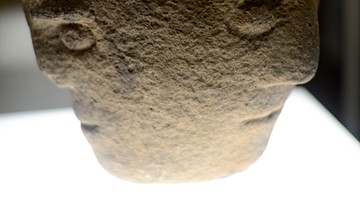
Image
Carved Stone Head from Corleck Hill, Ireland
Carved stone head (with 3 faces) from Corleck Hill, Co. Cavan, Ireland, 1st-2nd century.
National Museum of Ireland-Archaeology, Dublin.
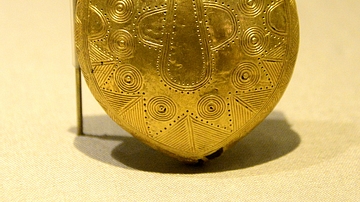
Image
Gold Foil-covered Lead Bulla from Bog of Allen
This Gold foil-covered lead bulla or amulet was found in Bog of Allen, Ireland. Circa 800-700 BCE. (National Museum of Ireland-Archaeology, Dublin, Republic of Ireland)

Image
Coffin of Diefiawet contaning a Ptelomaic mummy
The mummy is that of an adult female with her arms crossed over the breasts. X-rays have revealed that the body has suffered post-mortum mutilation; both the hands and feet are missing and dummies made of linen have been substituted by the...
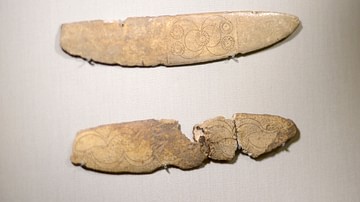
Image
Decorated Bone Objects from Ancient Ireland
Bones decorated with carvings from Loughcrew, Co. Meath, Ireland, 2nd century BCE.
National Museum of Ireland-Archaeology, Dublin.

Image
Mummy of Tentdinebu
The mummy, wrapped in linen bandages, is enclosed in a body-shaped envelope of cartonnage (a light-weight material composed of layers of gummed linen and plaster), which could be moulded to the desired shape. The surface is decorated with...

Image
Quern & Rubber from Ancient Ireland
Saddle-shaped quern (grindstone) and its rubber, found at Rathgall Hillfort, Rath East, Co. Wicklow, Ireland, 900-500 BCE.
National Museum of Ireland-Archaeology, Dublin.
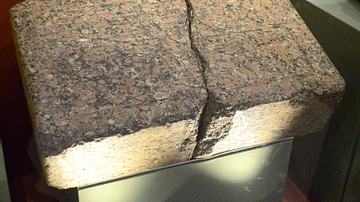
Image
Red Granite Offering Table of King Senusret III
Offerings were placed upon a reed mat, reproduced in stone as the offering tables of the Dynastic periods. On this royal example, the hieroglyph hetep "offering" is written on the surface. The sign comprises a bound reed mat with a domed...
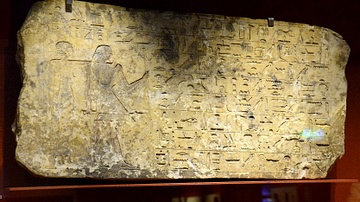
Image
Stela of Hetepneb
Brick tomb chapels for the richer members of the society contained stone elements inscribed in hieroglyphics with religious texts to ensure an eternal supply of offerings for the deceased. On this block, the figures of Hetepneb, a local administrator...
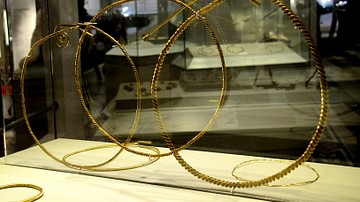
Image
Gold Torcs from Ancient Ireland
Three gold torcs, found at Tipper South, Co. Kildare, Ireland, 1200-1000 BCE.
National Museum of Ireland-Archaeology, Dublin.
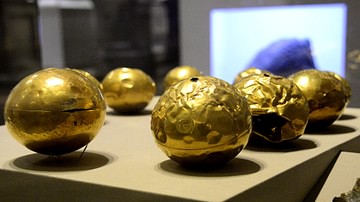
Image
Tumna Gold Beads
Hollow gold balls, found at Tumna, Co. Roscommon, Ireland, in 1843, dating to the Late Bronze Age. National Museum of Ireland-Archaeology, Dublin. Eleven balls are said to have been found when a group of men were tilling land near Tumna...